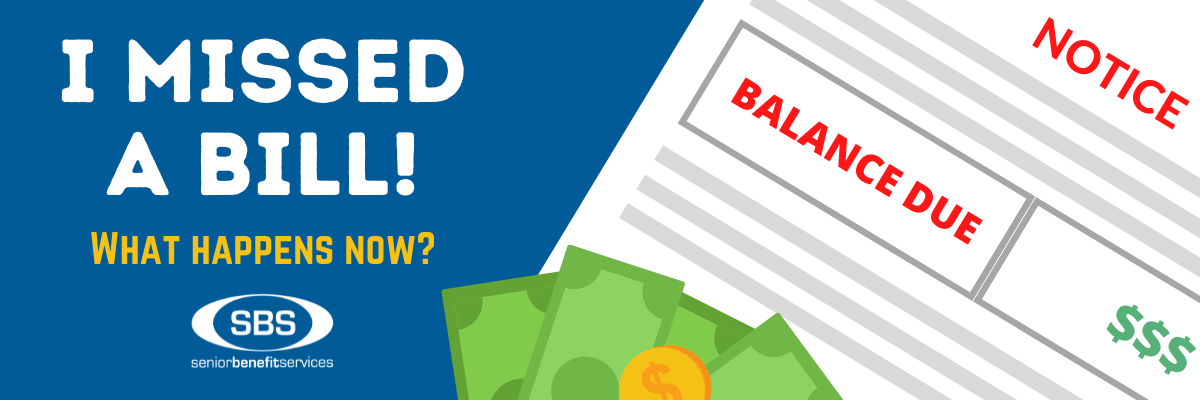
We’ve all been there. Missing a monthly bill can be alarming and stressful, especially if that bill determines your medical coverage. Luckily, there are a few safety nets in place for your coverage if you miss a premium payment.
Before anything else, your Medicare plan is required to send you a monthly bill in the mail that clearly states your balance and payment due date. Your plan is also required to send a written notice of non-payment in the mail, warning that coverage will stop unless you pay within the plan’s given grace period.
What is a grace period?
A grace period is a set amount of time after you miss a bill that your plan will continue to accept a payment. Grace periods change depending on the plan, with standard grace periods being anywhere from 60-90 days after a missed payment. More information on your plan’s grace period should be listed in your plan’s “Evidence of Coverage” document and in annual notices of change sent out each Fall to members.
Your insurance company cannot end your coverage during your grace period. However, you can lose all coverage retroactively if you miss a previous month and make future payments on time within the grace period.
What if I miss the grace period?
Once the grace period is up, your health coverage will be terminated due to non-payment, effective the beginning of the next month. However, there are still a few work-arounds if you couldn’t pay.
Under the Good Cause policy of Medicare, all planholders are able to submit an appeal to their insurance asking for more time to pay their premium. These appeals are generally only accepted if the member missed their bill due to an emergency or some sort of unforeseen circumstance.
If the insurance approves the appeal, the member must pay the remaining balance for their coverage to be reinstated. Appeals generally cannot be accepted more than 60 days after the disenrollment effective date.
What happens if I lose my coverage?
The only way to move forward after missing a grace period is to purchase a new plan during an enrollment period. Enrollment periods for insurance are as follows:
– Annual Enrollment Period: Oct. 15 – Dec. 7
– Open Enrollment Period: Jan. 1 – Mar. 31
You can also qualify for a special enrollment period through certain circumstances.
Tips for making payments on time:
- Make a list of every bill. The list will give you a clear idea of what your totals are for what you owe at the end of each month. Those monthly subscriptions and premiums can add up!
- Mark all due dates on your calendar. It’s important to take note of when each payment is due to maintain your coverage. You can also make an alert on any calendar app on your smartphone, so that you’ll even get a notification.
- Check your mail for remaining bills. Remember, insurance companies are required to send out a notice of nonpayment in the mail. If you get one, you are most likely still within the grace period to make your late payment. You can also enroll in paperless billing; make sure to check those emails!
- Automate your payments. Many online plans will allow you to set up automatic payment for your monthly premiums. Automatic payment is something you must opt in to, so check your plan to see if it’s available.
- Do a final check each month. Going through each of your monthly expenses, including your insurance premium, gives you a good idea of where your finances are at. It never hurts to double check!